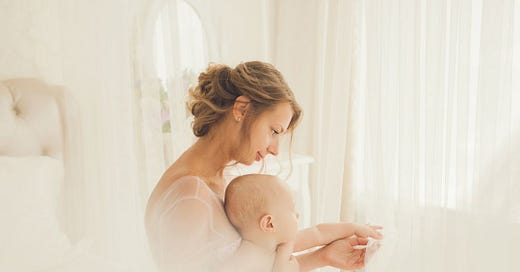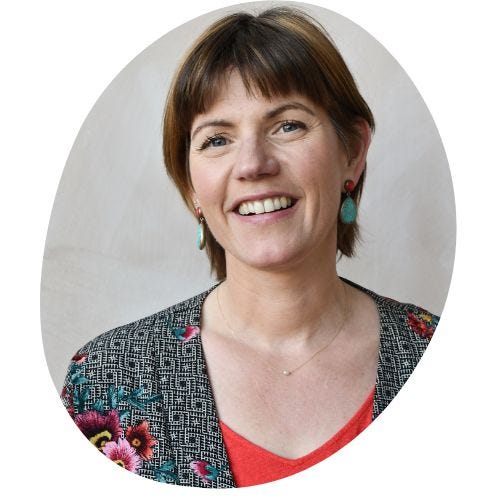Am I a bad mum if I don't feel like I've got things 'sorted'?
Because everyone else has their s**t together, right?
I’ve been really enjoying listening to Lucy Jones’ book Matrescence this week - I think she beautifully puts words around some of the feelings around becoming a mother that can be so hard to capture (in fact the word matrescence itself isn’t considered to exist, much like these feelings are not ‘meant’ to exist).
And one of the things that Lucy describes so wonderfully is the complete ‘undoing’ effect that motherhood can have on us. How it can feel as though we’re blown apart by the experience of becoming a mother, left trying to figure out what pieces of ourselves remain and how to put them back together.
The concept of matrescence contains ideas we link to the idea of adolescence - a time of swirling hormones and developing bodies, shifting identities and changing relationships, and moving into a new period of responsibility in the world. A time of fear, and worry, and joy, and pleasure, and pain, and anger, and excitement, and existential terror.
And these same feelings can be found in the transition to motherhood.
Yet whilst we are going through these crazy, swirling emotions and changes, we are also learning to look after the most precious, scary thing we have ever encountered. Our baby.
So it’s little surprise that it might feel as though we are feeling overwhelmed and out of control and as though we’re barely holding things together.
It might feel a bit easier if this were spoken about.
Instead we see other mothers, out and about, looking like they have it all together. We see people posting on social media and we are gobsmacked that they seem to be feeling put-together enough to feel so much joy.
And when the prevailing social context that we live in gives us the impression that the ‘correct’ experience of early parenthood is joy, and contentment, and wholeness, and competence, it’s hard not to worry that something is wrong with you.
You don’t see the mothers who don’t have their s**t together.
I often point out to my clients that the mothers who are not feeling as though they want to or are able to present this ‘together’ view of themselves to the world are still at home. Possibly in pyjamas.
They are not at groups. They are not on social media. They are not in cafes, looking blissful as they calmly feed their settled baby.
These mothers are invisible, and so they are not seen as the presenting face of motherhood.
We can only wonder whether they feel OK about not presenting a competent, in control version themselves or not. Either way, they’re just not doing it.
So our baseline is skewed. Our view of mothers is influenced by this self-selecting group. It is an inherently biased sample.
So what can I do to help myself feel better?
OK - so you might be wondering what use is knowing all of this? How does it help you?
And I have two suggestions to make:
Be compassionate to yourself. It can never be said enough. But accepting that you are dealing with a pretty massive transition right now and it might take a while to adjust is something to consider.
Find the hidden mums. Find the ones who aren’t posting about how much they’re loving this stage. A bit like the girls at school who might have made you feel rubbish just by looking as though they were having the time of their lives, they might not be your tribe. Your tribe might be found in your gentle exercise class where you don’t take your babies. Your tribe might be found online in the more curious postings about motherhood. Your tribe might be found in peer support groups like Juno (a wonderful charity in Edinburgh). They will be harder to find, but they are out there.
As ever, I wish you luck in all of this. It’s not easy. But it’s so worth it. And if you want some more therapeutic support to think about these things, please do get in touch.
Until next week, take care,
Sarah x




